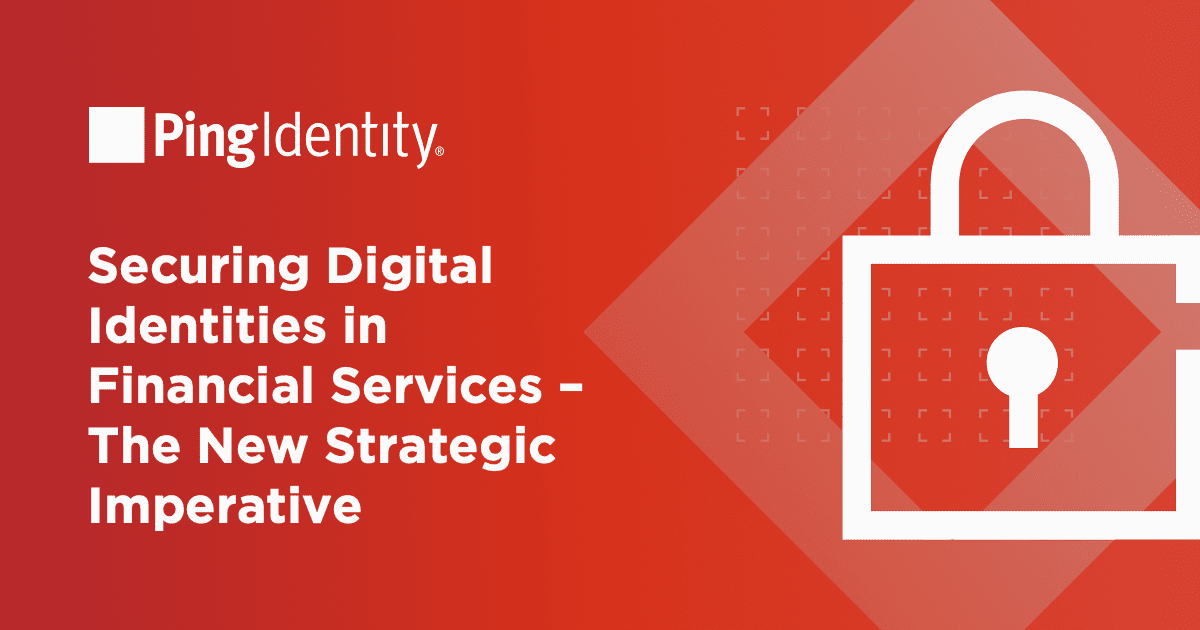Set aside your preconceptions about the people who are at this moment driving the U.S. information technology (IT) industry's $1.9 trillion market value. They are neither John Hodgman nor Elizabeth Holmes. They are engineers and artists, marketers and analysts. They are imaginative and they are strategic. They include people who are good with numbers and people who are good with people.
As a career choice, the tech sector has come a long way since it first became a commercial entity in the 1960s. It had to. As technology evolved from its beginnings in government labs to scientific and industrial applications and on to personal computers, the people building and using the technology evolved, too. Now that it is integral to every aspect of our everyday lives — our work, health, education, transportation, commerce, entertainment — technology must reflect the people who use it. In other words, all of us.
But our LGBTQ+ community is underrepresented in tech and that's unfortunate for everyone.
Technology is all about solving complex problems, but if technology is developed predominantly by people from the same background and culture, it may fail to address the needs, values, or perspectives of other people. This is known as technology bias. One example of technology bias can be found in facial recognition algorithms, which are trained to learn patterns and features for identification. If the dataset primarily includes cisgender faces or lacks diversity in gender identity, the algorithm may not effectively recognize transgender individuals.
On the other hand, diverse teams can approach challenges from multiple angles and identify novel solutions to complex problems — and eliminate the risk of technology bias. Technology leaders recognize that diverse perspectives are more likely to generate a wide range of innovative ideas, leading to better decision-making, problem-solving, and success in an increasingly diverse and interconnected world.
Why Consider a Career in Technology?
Technology careers are growing far faster than occupations in general. According to the Bureau for Labor Statistics, the field of computer and information technology is projected to grow by 15% from 2021 to 2031, adding nearly 700,000 jobs over the decade. The median annual salary for employees in computer and information technology was $97,430 as of May 2021, which is significantly higher than the annual median for occupations at large ($45,760).
Best of all, technology permeates every industry, so you can put your skills to work in just about any area that interests you. Whether you join a company on the cutting edge of cybersecurity or a developer of business software, gaming apps, or cloud infrastructure, technology careers offer a number of benefits.
- Opportunities for growth and advancement: The technology industry is constantly evolving, creating opportunities to develop new skills and explore new areas of interest. In technology, you can advance your career as you take on new challenges and gain experience and expertise.
- Top salaries and benefits: The technology industry is known for offering attractive salaries and benefits packages, including health insurance, retirement plans, and more. It can help you achieve financial stability and security, and paid time off helps you achieve work-life balance.
- Chance to make a difference: Many companies are focused on making a positive impact on the world, and in our communities, often through developing new technologies or supporting social causes. By working in the sector with a company whose mission you support, you can build your career as you contribute to meaningful change.
- Flexible work arrangements: Many technology companies offer their employees a variety of options, including flexible schedules and remote work. This is especially beneficial for people with families and other personal priorities.
Careers in Technology
There are many exciting and rewarding careers in technology — here are just some of them.
- Software development: Software developers create software applications, design and develop websites, or build mobile apps. You could work in a variety of industries, from healthcare to education to finance to entertainment.
- Data analysis: Data analysts interpret complex data to help businesses make informed decisions. You could work in fields such as marketing, finance, or healthcare.
- Cybersecurity: Cybersecurity professionals protect organizations from cyberthreats and fraud, such as account takeover (ATO), by developing and implementing security measures, monitoring systems for vulnerabilities, and responding to security incidents.
- User experience (UX) design: UX designers create engaging and intuitive interfaces for websites and mobile apps. You could work in a wide variety of industries, including e-commerce, entertainment, finance, and healthcare.
- Technical writing: Technical writers create documentation for software applications, websites, and other technical products. You could work in a variety of industries, including healthcare, finance, and technology.
- Marketing: Tech companies need storytellers to build awareness in the market, educate audiences, and create demand. On the creative side, these marketers include writers, graphic designers, video producers, event planners, and more. On the strategic side, they are public relations professionals, product experts, market analysts, and specialists in digital marketing and SEO.
- Game development: Game developers create video games for a variety of platforms, including consoles, computers, and mobile devices. You could work in a variety of genres, from action to puzzle to simulation.
How To Get a Job in Technology
There are several steps you can take to increase your chances of landing the right position in the right company. Here are some tips:
- Identify your area of interest: Technology is a broad field, so it is important to determine where you want to specialize. Examples can include software engineering, data science, cybersecurity, and user experience design. In addition, there are scores of roles in the tech sector that are not, in themselves, technical, but offer the benefits of being part of an innovative, fast-paced industry.
- Develop your skills: Once you've identified your area of interest, start building your skills. Take online courses, attend workshops and trade shows, read books, and participate in group activities, such as hackathons or coding challenges. Building a portfolio of projects is also a great way to showcase your skills to potential employers.
- Build a network: Attend industry events, join online communities, and connect with people in your desired field. Your network can alert you to job opportunities, share information about the best companies and cultures, and introduce you to potential employers.
- Explore certifications in areas of interest to you: Apple, Cisco, AWS, CompTIA, Microsoft, and many other organizations offer certification programs that can jumpstart your career.
Hot Topics and Useful Skills
- Artificial intelligence and machine learning (AI/ML)
- Authentication method development
- Blockchain
- Cloud computing
- Computer graphic development
- Customer Identity and Access Management (CIAM)
- Cybersecurity
- Data analysis
- Data privacy
- Data science
- Digital identity management
- Digital marketing
- Edge Computing
- Game development
- Identity and access management (IAM)
- Identity governance
- Identity Threat Detection & Response
- Industrial design
- Internet of Things (IoT) and IoT Security
- Mobile development
- Open banking
- Passwordless authentication
- Programming
- Project management
- Quantum computing
- Robotics
- Security standards
- Software development
- Technical writing
- UI/UX design
- Virtualization
Educational Resources for LGBTQ+ People in Tech
- Maven Youth: This organization empowers LGBTQ+ youth to network, organize, and educate for social change through technology and the tech sector. Their program includes summer tech camps, virtual workshops, youth leadership, and tech career readiness.
- Out for Undergrad (O4U): This organization holds major conferences for LGBTQ+ students, who can network, learn from professionals, and participate in career fairs. Participation for students is also free.
- Out in Science, Technology, Engineering, and Mathematics (oSTEM): This is a non-profit professional association for LGBTQ+ people in the STEM community. They have over 100 student chapters at colleges/universities across the United States and aim to empower LGBTQ+ people in STEM by cultivating environments and communities that nurture innovation, leadership, and advocacy.
- Out to Innovate: This is a professional society and global community of LGBTQ+ students and professionals in science, technology, engineering, and mathematics that offers a host of career resources. The group provides education, advocacy, professional development, networking, and peer support.
Job Resources for LGBTQ+ People in Tech
- Lesbians Who Tech: This organization provides professional networking opportunities for LGBTQ individuals — particularly women and nonbinary individuals.
- LGBT Connect: A site dedicated to connecting employers with the LGBT community.
- LGBTECH: This organization provides a community space for LGBTQ tech professionals and also promotes diversity and inclusivity.
- National LGBT Chamber of Commerce (NGLCC): This organization advocates for opportunities and advancement of LGBTQ business professionals and also operates as a certifying body for LGBTQ-owned businesses.
- National Organization of Gay and Lesbian Scientists and Technical Professionals (NOGLSTP): This is a professional organization comprised of LGBTQ individuals who work in science and engineering.
- Out in Science, Technology, Engineering, and Mathematics (oSTEM): This organization provides various academic and professional resources for LGBTQ individuals in STEM fields.
- Out in Tech: This organization provides professional networking opportunities for LGBTQ professionals.
- Out Professionals: This is a nonprofit networking organization for LGBTQ professionals.
- Pink Jobs: This site was created to list LGBT-friendly job roles from pro-equality partners.
- Pride at Work: This organization promotes diversity in the workplace and advocates for LGBTQ rights in professional environments.
- Pride in STEM: This organization seeks to promote equality and representation of LGBTQ people in STEM fields.
- Queer Tech Club (QTC): This organization provides professional development and networking opportunities for LGBTQ+ technologists. Based out of Chicago, they have a monthly happy hour event that includes time for members to pitch startup ideas, discuss recent accomplishments, and more.
- Start Out: This organization seeks to increase the number of LGBTQ entrepreneurs and share their stories.
- TransTech: This organization provides education and professional opportunities for LGBTQ individuals (particularly those who are trans or non-gender-conforming) to overcome barriers in schooling or professional spaces.
Scholarships for LGBTQ+ Students Pursuing Degrees in STEM
- Out to Innovate™ Scholarships: The Out to Innovate™ Scholarships are intended for LGBTQ+ undergraduate students pursuing degrees in science, technology, engineering, or mathematics programs, and are designed to promote academic excellence and increased visibility of talented LGBTQ+ students in STEM careers.
- Study.com LGBTQ+ STEM Scholarship: Any LGBTQ+ student pursuing their undergraduate or graduate college degree in a STEM field can apply to the LGBTQ+ STEM Scholarship from Study.com, whose mission is to make education accessible, and hopes to bring this historically underrepresented group of students access to quality education with this scholarship.
- Edie Windsor Coding Scholarship: Edie Windsor, the plaintiff at the center of the Supreme Court's 2013 rejection of the Defense of Marriage Act, is the inspiration for this scholarship. Individuals wanting to complete a coding bootcamp should plan to enroll in a camp and must identify as an LGBTQ+ woman or nonbinary individual.
- Better Together STEM Scholarship Program: PG&E offers various scholarships for Californians pursuing STEM majors, including the PG&E Pride Network Employee Resource Group scholarship.
Mentorship and Support Resources
- Out in Tech U's Mentorship Program: This organization pairs LGBTQ+ young adults with tech professionals from Out in Tech's membership. Each mentee learns a mix of technical and professional skills needed for launching a successful career.
- PATHS | LGBT Tech: This is a platform intended to inspire and motivate LGBTQ+ youth and young adults interested in careers in science, technology, engineering, arts, and mathematics (STEAM) fields through storytelling by current LGBTQ+ STEAM professionals.
- LGBTQ in Technology: This is a Slack channel open to anybody in tech who identifies as lesbian, gay, bisexual, trans, non-binary, gender non-conforming, queer, and those questioning whether they fit into those or any other sub-genres of people who aren't generally considered both "straight" and cis. It's a space intended to chat and support each other in a positive and confidential place.
- Pride in STEM: This is a charity run by an independent group of LGBTQIA+ scientists and engineers from around the world. They aim to showcase and support all LGBTQIA+ people in STEM fields. Along with two other organizations, Pride in STEM is responsible for LGBT STEM Day (held November 18th), which was founded to celebrate and highlight the work and barriers of LGBTQ+ people in STEM.
- Trans*H4ck: This organization aims to promote equitable pay, economic advancement, improved personal safety, and better overall support for the trans community.
- LGBTQ+ STEM Innovators and Resources: This list compiled by Columbia Engineering identifies inspiring and innovative individuals and organizations that have supported and/or made significant contributions to the LGBTQ+ tech community.
- 500 Queer Sci1entists: This is a visibility campaign for LGBTQ+ people and their allies working in STEM and STEM-supporting jobs. They are looking to ensure the next generation has LGBTQ+ role models and create opportunities for community connections and greater visibility within STEM.


